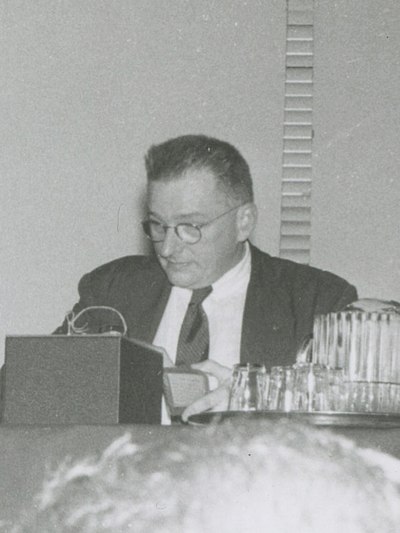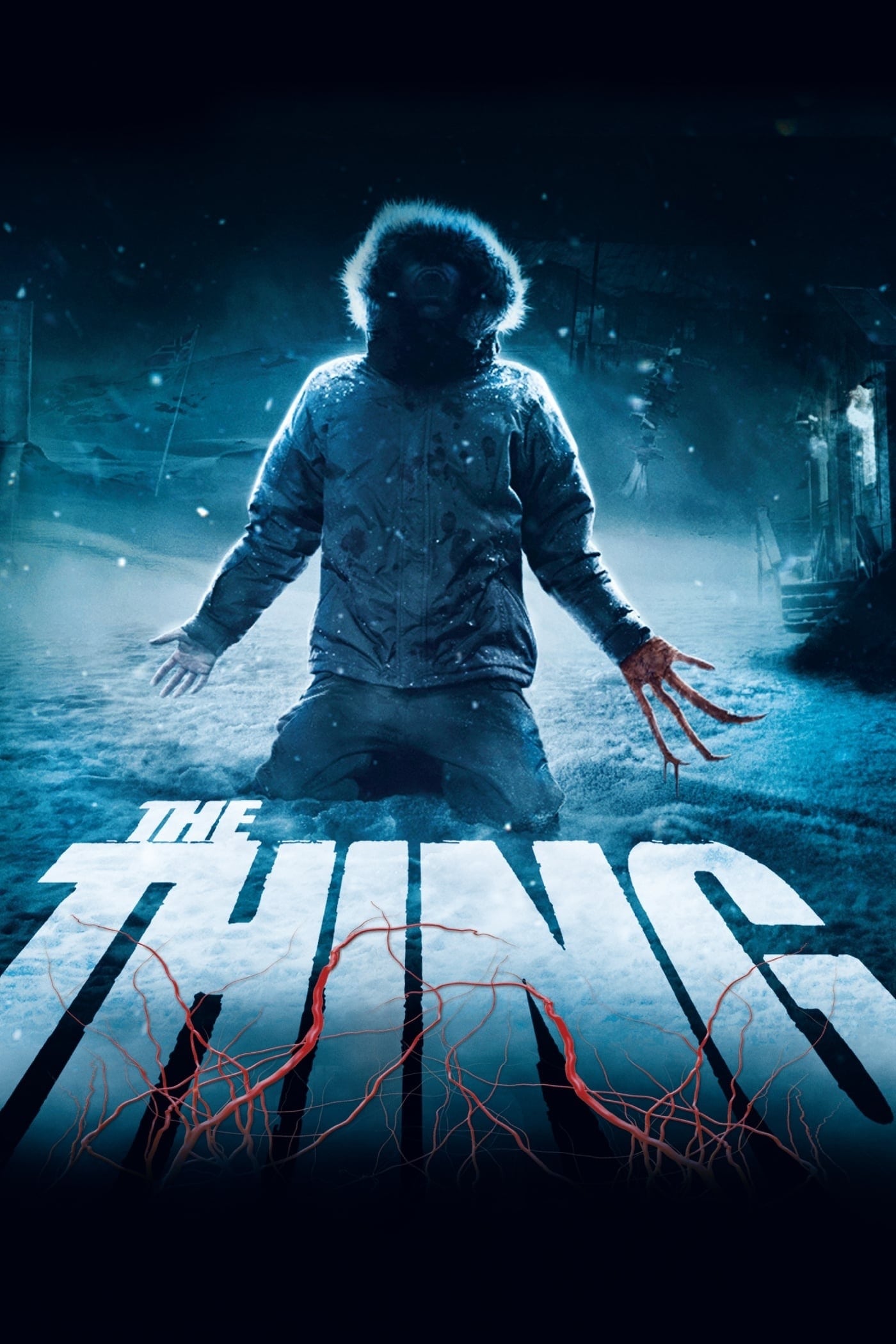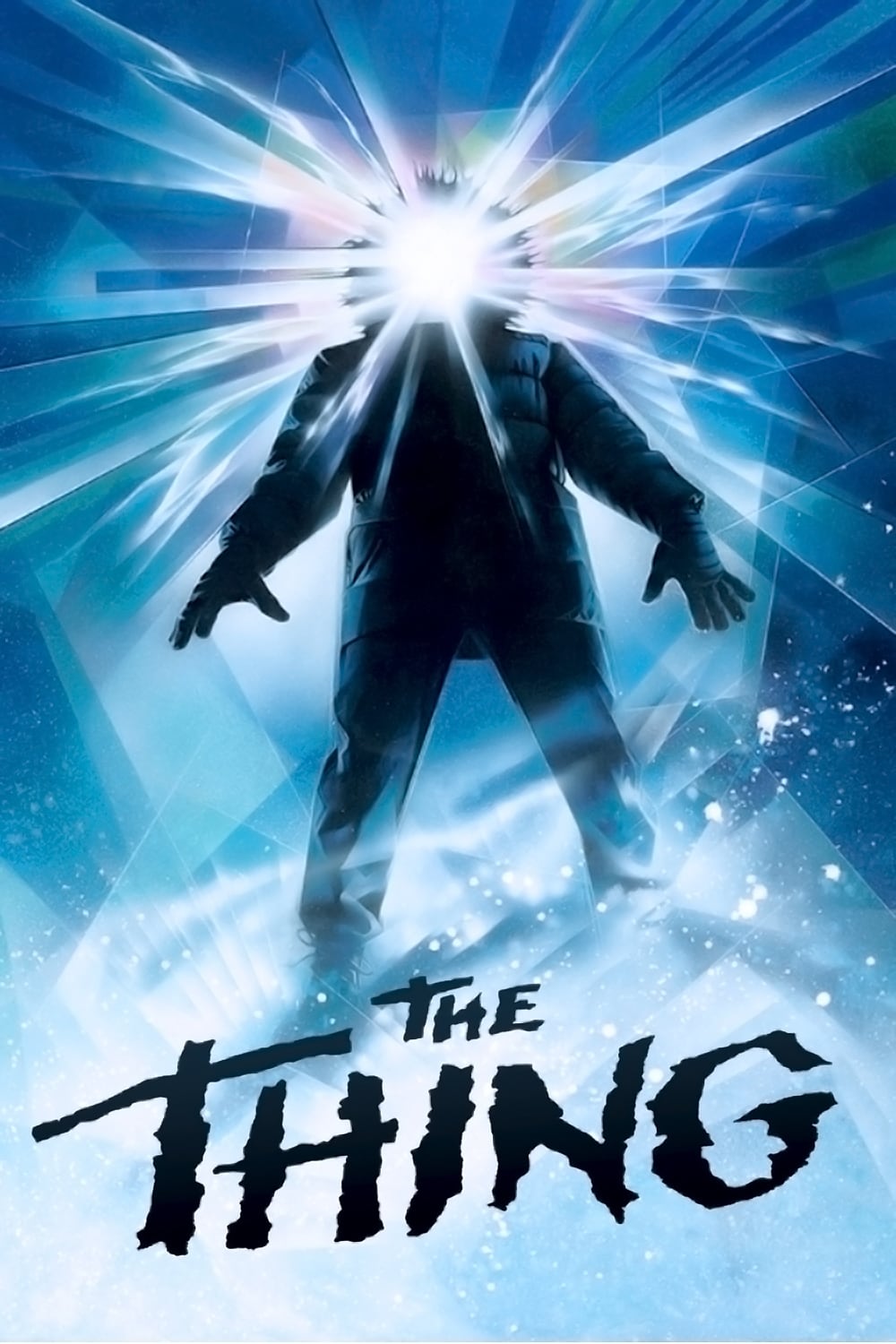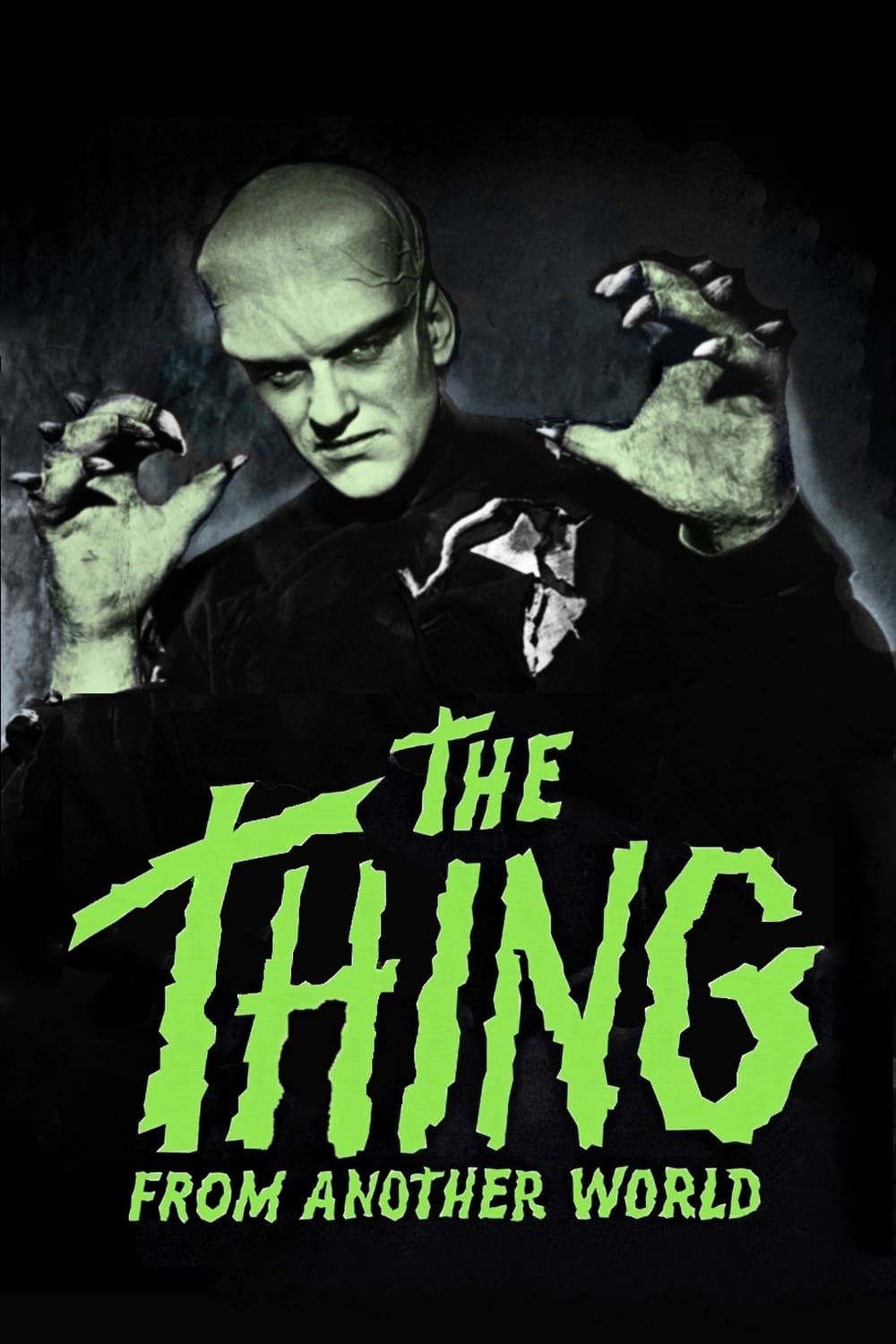Biography
John Wood Campbell Jr. (June 8, 1910 – July 11, 1971) was an American science fiction writer and editor. He was editor of Astounding Science Fiction (later called Analog Science Fiction and Fact) from late 1937 until his death and was part of the Golden Age of Science Fiction. Campbell wrote super-science space opera under his own name and stories under his primary pseudonym, Don A. Stuart. Campbell also used the pen names Karl Van Kampen and Arthur McCann. His novella Who Goes There? was adapted as the films The Thing from Another World (1951), The Thing (1982), and The Thing (2011).
Campbell began writing science fiction at age 18 while attending MIT. He published six short stories, one novel, and eight letters in the science fiction magazine Amazing Stories from 1930 to 1931. This work established Campbell's reputation as a writer of space adventure. When in 1934 he began to write stories with a different tone, he wrote as Don A. Stuart. From 1930 until the later part of that decade, Campbell was prolific and successful under both names, though he stopped writing fiction shortly after he became editor of Astounding in 1937.
It is as editor of Astounding Science Fiction from late 1937 until his death for which Campbell is primarily remembered today. In 1939, Campbell started the fantasy magazine Unknown, which was canceled after only four years. Referring to his time spent as an editor, The Encyclopedia of Science Fiction states: "More than any other individual, he helped to shape modern sf." Isaac Asimov called Campbell "the most powerful force in science fiction ever" and said the "first ten years of his editorship he dominated the field completely." In his capacity as an editor, Campbell published some of the very earliest work, and helped shape the careers of virtually every important science-fiction author to debut between 1938 and 1946, including Asimov, Robert A. Heinlein, Theodore Sturgeon, and Arthur C. Clarke.
An increasingly strong interest in pseudoscience later alienated Campbell from Asimov. In the 1960s, Campbell's controversial essays supporting segregation, and other remarks and writings surrounding slavery and race, served to distance him from many in the science fiction community. Nevertheless, Campbell remained an important figure in science fiction publishing up until his death. Campbell and Astounding shared one of the inaugural Hugo Awards with H. L. Gold and Galaxy at the 1953 World Science Fiction Convention. Subsequently, Campbell and Astounding won the Hugo Award for Best Professional Magazine seven times.
Shortly after his death in 1971, the University of Kansas science fiction program established the annual John W. Campbell Memorial Award for Best Science Fiction Novel and also renamed its annual Campbell Conference after him. The World Science Fiction Society established the annual John W. Campbell Award for Best New Writer, since renamed the Astounding Award for Best New Writer. The Science Fiction and Fantasy Hall of Fame inducted Campbell in 1996, in its inaugural class of two deceased and two living persons. John Campbell was born in Newark, New Jersey, in 1910. His father, John Wood Campbell Sr., was an electrical engineer. His mother, Dorothy (née Strahern) had an identical twin who visited them often and who disliked John. John was unable to tell them apart and says he was frequently rebuffed by the person he took to be his mother. Campbell attended the Blair Academy, a boarding school in rural Warren County, New Jersey, but did not graduate because of lack of credits for French and trigonometry.
He also attended, without graduating, the Massachusetts Institute of Technology (MIT), where he was befriended by the mathematician Norbert Wiener (who coined the term cybernetics) – but he failed German, and MIT dismissed him in his junior year in 1931. After two years at Duke University, he graduated with a Bachelor of Science in physics in 1934.Campbell began writing science fiction at age 18 while attending MIT and sold his first stories quickly. From January 1930 to June 1931, Amazing Stories published six of his short stories, one novel, and six letters. Campbell was editor of Astounding Science Fiction (later called Analog Science Fiction and Fact) from late 1937 until his death. He stopped writing fiction after he became the editor of Astounding. Between December 11, 1957, and June 13, 1958, he hosted a weekly science fiction radio program called Exploring Tomorrow. The scripts were written by authors such as Gordon R. Dickson and Robert Silverberg.Campbell and Doña Stewart married in 1931. They divorced in 1949, and he married Margaret (Peg) Winter in 1950. He spent most of his life in New Jersey and died of heart failure at his home in Mountainside, New Jersey. He was an atheist.
Filmography
Ratings
Information
Known ForWriting
GenderMale
Birthday1910-06-08
Deathday1971-07-11 (61 years old)
Birth PlaceNewark, United States of America
Religionatheism
CitizenshipsUnited States of America
AwardsRetro Hugo Award for Best Novella, Science Fiction and Fantasy Hall of Fame, Retro Hugo Award, Hugo Award for Best Professional Magazine
This article uses material from Wikipedia.
 John W. Campbell Jr.
John W. Campbell Jr.- Filmography
- Information



